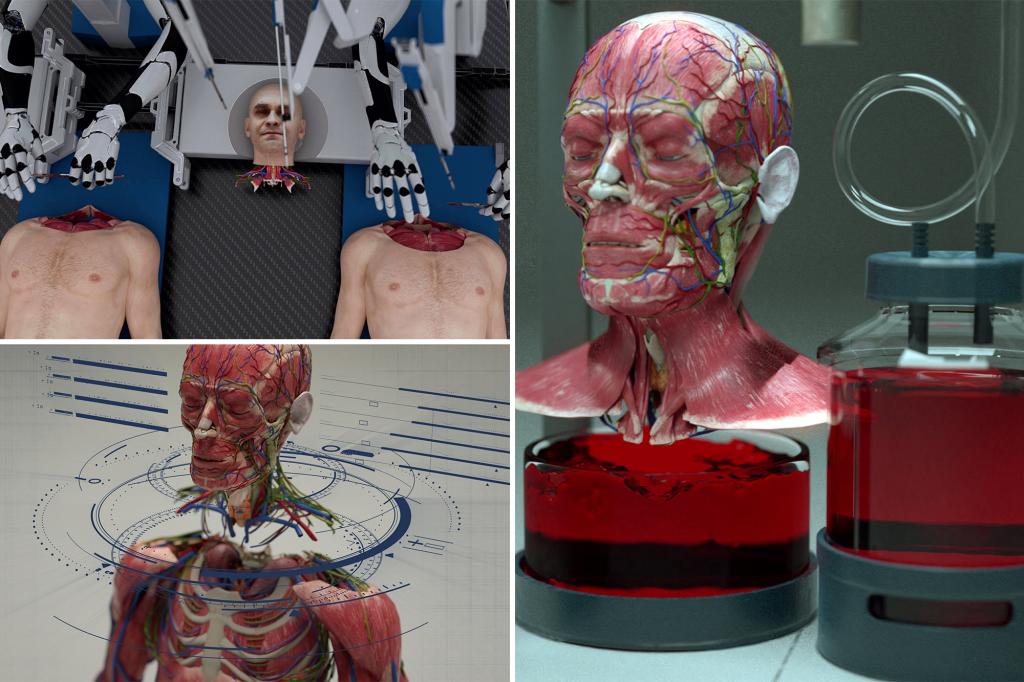Scientists at BrainBridge have developed an AI-mechanized system for head transplants that would graft a head onto the body of a brain-dead donor, maintaining memories, cognitive abilities, and consciousness. The procedure aims to help patients with untreatable conditions like paralysis, cancer, Alzheimer’s, and Parkinson’s. Hashem Al-Ghaili, a scientist involved in the project, stated that the technology is pushing the boundaries of medical science to provide innovative solutions for life-threatening conditions that were previously unimaginable. The goal is to open doors to lifesaving treatments that were not possible a few years ago.
The process of head transplantation involves using surgical robots and artificial intelligence to reconstruct facial features for full facial muscle use. BrainBridge plans to prevent brain cell degradation and ensure compatibility using advanced robotic systems, real-time molecular-level imaging, and AI algorithms to facilitate precise reconnection of the spinal cord, nerves, and blood vessels. The company claims that the first procedure will be conducted within eight years and is publicizing it in advance to attract top scientists to the project.
The innovations in the head transplant procedure are expected to result in spinal cord reconstruction breakthroughs and whole-body transplants. BrainBridge believes that the project will not only transform healthcare by providing new possibilities for treating conditions that were previously incurable but also expand into areas that will revolutionize healthcare as we know it. By combining cutting-edge technology with medical science, the company hopes to redefine what is possible in the field of healthcare and provide hope to those suffering from life-threatening conditions.
The potential benefits of head transplantation for patients suffering from paralysis, certain cancers, and neurological diseases like Alzheimer’s and Parkinson’s are significant. By preserving memories, cognitive abilities, and consciousness through the procedure, patients may have a chance to regain lost functions and improve their quality of life. The use of surgical robots and AI in the process ensures accuracy and precision in reconnecting critical components like the spinal cord, nerves, and blood vessels, leading to successful outcomes and minimizing the risk of complications.
BrainBridge’s focus on pushing the boundaries of medical science and providing innovative solutions for life-threatening conditions highlights the importance of continued research and development in the healthcare industry. The company’s commitment to transforming healthcare by introducing groundbreaking procedures like head transplants demonstrates the potential for technology to revolutionize treatment options and outcomes for patients. With the promise of opening doors to lifesaving treatments that were previously unimaginable, BrainBridge is leading the way in advancing medical science and offering hope to those in need of innovative solutions for their conditions.


